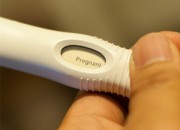Health
Normally, when you hear about the success rate of a birth control method, it’s given to you as two numbers: the probability of failure per year when used perfectly, and the probability when used “typically.” The difference can range from minor to catastrophic. This is insane. Speaking as an engineer, a system that works well when operated perfectly and fails completely when anything isn’t operated perfectly is basically the textbook description of what a safety system isn’t. But let’s look at the numbers.
Vince Mak and Colby Spear are students at the Miami Ad School. Their project was simple: to create a successful campaign to raise awareness about men’s health. To do it, they launched a profile on the hookup app Tinder — but not for either one of them. The profile features a brunette with girl-next-door charm and a huge smile on her face. Her name is Nurse Nicole. The mission of her profile is to turn conversations from the sexy into the healthy.
According to the poster, he was engaging in anal sex when he felt something in the anal canal and pulled out to discover a large cestode coiled around his sexual organ. “Cestode” describes any number of a class of parasitic flatworms, the best known of which is the tapeworm, which also happens to be the star of this horrific anecdote. If you’re familiar with this parasite, you can probably guess why this anecdote strikes me as false. Otherwise, read on.
A recent study found that sex makes a difference in how well partners cope with physical illness in the relationship, suggesting that sex is the bridge that helps couples pull through during the tough times. A healthy sex life — whatever your preferred way of engaging in it — is a powerful first line of defense against stress and life difficulties.
Saying that the 2009 AIDS-denialist film House of Numbers is bunk is nothing new. What is new, however, is that YouTuber Myles Power knows how to make a video that people want to watch and share. To date, his five debunking videos have reached 40,529 people — not just readers of the New York Times or subscribers to the Lancet or people seeking information about AIDS specifically, but laypeople of all stripes. That has power. And that’s why he must be silenced.
My mother had arrived at the cathedral altar wearing white, the traditional symbol of purity, and not been struck down by an angry deity. But she was very aware, too, that punishment for failing to comply with cultural norms wasn’t necessarily meted out by a furious god, but rather by people. As a result, while I didn’t get the message that I had to be a virgin until marriage, I did get the message that it was important not to give people reason to believe I wasn’t.
For decades, governments and groups have worked to inform the public about sexually transmitted infection, often resorting to terrifying imagery. The ads might have brought people’s vulnerability into the forefront of their minds, but they dehumanized and reinforced stigma against people living with sexually transmitted infections. When New York photographer Andrea Brough decided to do a photo series narrating the story of a couple grappling with a positive test result, she wasn’t thinking about the history of sexual health ads. She only knew one thing: she didn’t want to be preachy.
We live in a society that teaches women that men are extremely sexual creatures who can’t be expected to control themselves. From teachers that tell young girls that wearing spaghetti straps is “distracting” to boys, to judges that tell women that wearing a tube top sends “signals” to an attacker, women are told, again and again, that men are basically beasts that live in a perpetual haze of desire; as a result, women are shocked when men don’t pop a boner the second she undresses before him.
On November 21, United States President Barack Obama signed a bill reversing the ban preventing people with human immunodeficiency virus (HIV) from donating their organs after death. This coup comes two years after a paper was published estimating that some 500 people with HIV would be eligible for organ donation if not for the ban, enabling hundreds of life-saving transplants for patients also infected with the virus.
















